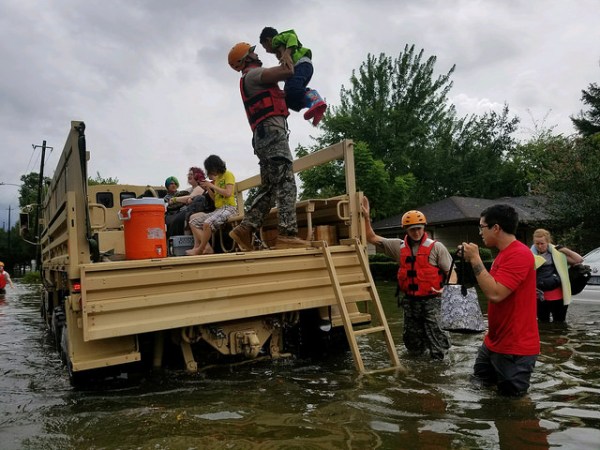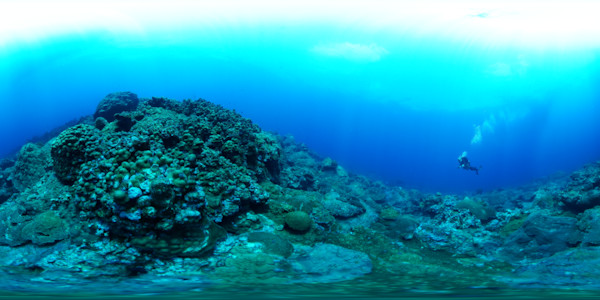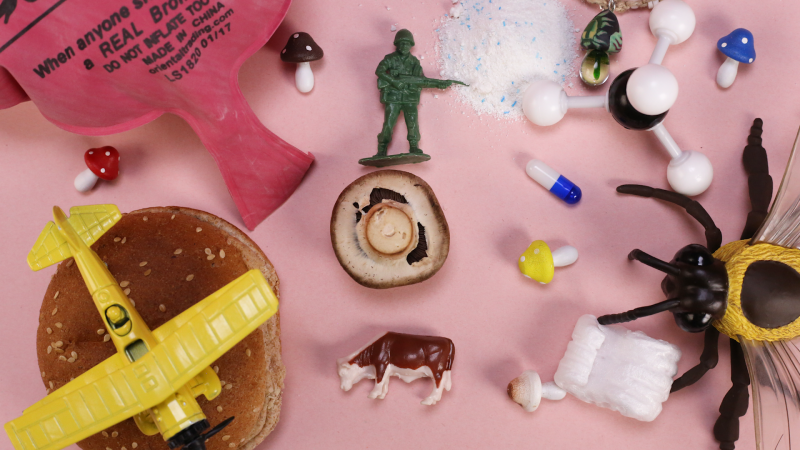

Houston is home to over two million people, some 30,000 of which will be left homeless in the aftermath of Hurricane Harvey. It’s also home to multiple major research institutions, many of which took heavy hits from the storm. Houston scientists study everything from cardiovascular disease to the movements of the planets, and after checking in on family and friends, some also checked in on their labs—where water-damaged equipment, floods, and power outages mean losing ground on critical experiments, or losing them entirely.
Following conversations with colleagues on Twitter, Tim Mosca, a neuroscientist at Thomas Jefferson University in Pennsylvania, wanted to help researchers impacted by Harvey. “My lab and I put up a message, just something very general: If you’ve been displaced by Harvey let us know how we can help.”
Things took off from there, Mosca says, with labs across the country mirroring the offer. March for Science Houston, an organization dedicated to science communication and public outreach, started compiling a document of labs with space and resources soon after. As of Wednesday, over 150 facilities have answered the call. On Twitter, offers continue to pour in.
On the gulf coast in Port Aransas, the University of Texas Marine Science Institute was devastated by the storm. Brett Baker, a microbiologist at the institute, says that he’s been overwhelmed by the number of people reaching out. “I’m getting all these emails and messages offering places to live and lab space,” he says. “I’m trying to put a positive spin on things. I told my students to take advantage of this, and go to a lab with people you want to learn from and collaborate with.”
Baker’s students are planning to join groups across the country, from Berkeley to Harvard. He hasn’t been to see his lab yet, but he thinks at least one major piece of equipment—a $25,000 computer—appears to be safe. Baker is optimistic that he’ll be able to recover a good portion of his lab’s data. “We do a lot of computational work,” he says. “I’ve been offered server spaces on all of these supercomputers around the country.” Baker plans to transfer his data to servers at Ohio State University.
BethAnn McLaughlin, a neuroscientist at Vanderbilt University, was one of the first to offer up her lab—and space in her home—to stranded researchers. She was in Nashville in 2010 when rain sent floodwaters through the city. Her lab was on the eighth floor, safe from the rising water, but loss of power to key equipment, like freezers, ruined experiments.
“We probably lost several months of work,” McLaughlin says. With that in mind, she threw her doors wide open. “Everyone can come to my lab, we’ll just squash them in like little sardines, it’ll be great.”
The National Institutes of Health, which funds scientific research, have mechanisms in place to help researchers dealing with disasters like Harvey, though they’ll take longer to go into effect. On Monday, the NIH announced that it would be considering late applications and reports. McLaughlin said that the deadlines of applications for R01 grants, which help researchers set up their labs, will probably be pushed back. The NIH also has programs that provide additional money to existing grants to meet unanticipated needs, and those policies were used to help researchers who needed extra funding during recovery from Hurricane Sandy. Mosca says he anticipates the same programs will be available now.
Despite the mechanisms in place to support scientists, and the outpouring of help from across the country, scientific research will take a beating in the weeks, months and years to come. The loss of data, lack of progress on experiments, and gaps between publications will hit newer researchers particularly hard, McLaughlin says. “Spending a year getting your personal and professional life back on track in a competitive environment is devastating,” she says. “It won’t surprise me to see some scientists, particularly postdocs, leave science.”
The National Academies of Science, Engineering and Medicine recognized the risks these disasters pose to science last year, when they started work on a study on the impact of natural disasters on research. The results were published at the beginning of August, and highlighted the potential damage to scientific knowledge and economic progress. “The academic biomedical research community should begin discussing how to prepare for the worst, as the worst clearly can happen,” says the report summary.
But regardless of what happens in the next weeks and months, scientists in Texas are grateful for the support from the research community. “With all the other crap we’re dealing with, it helps to know people have my back,” Baker says.







